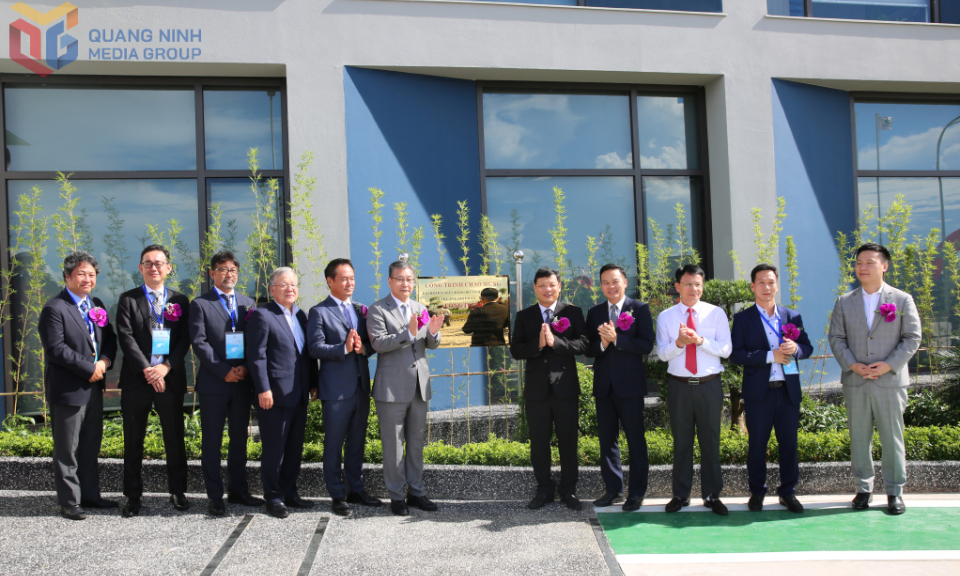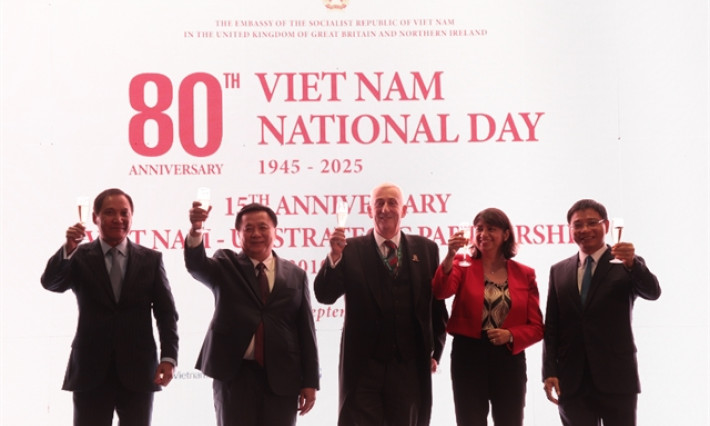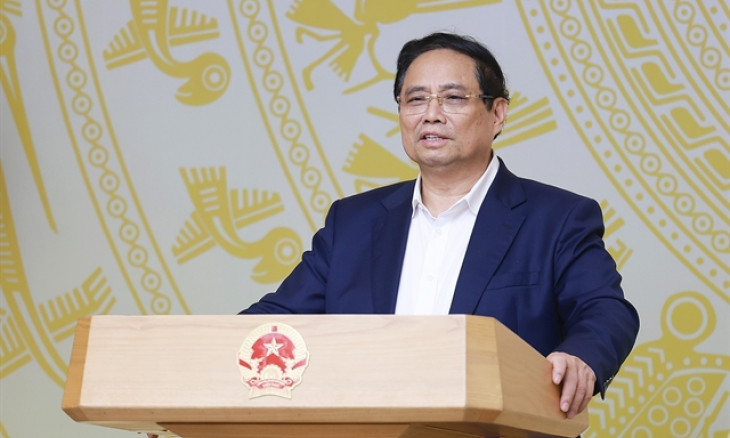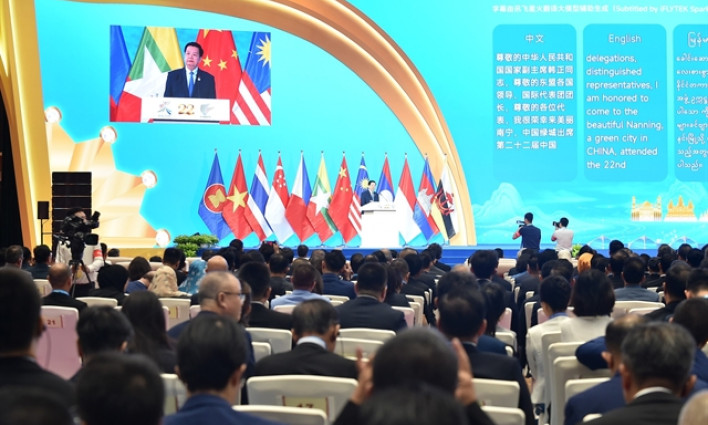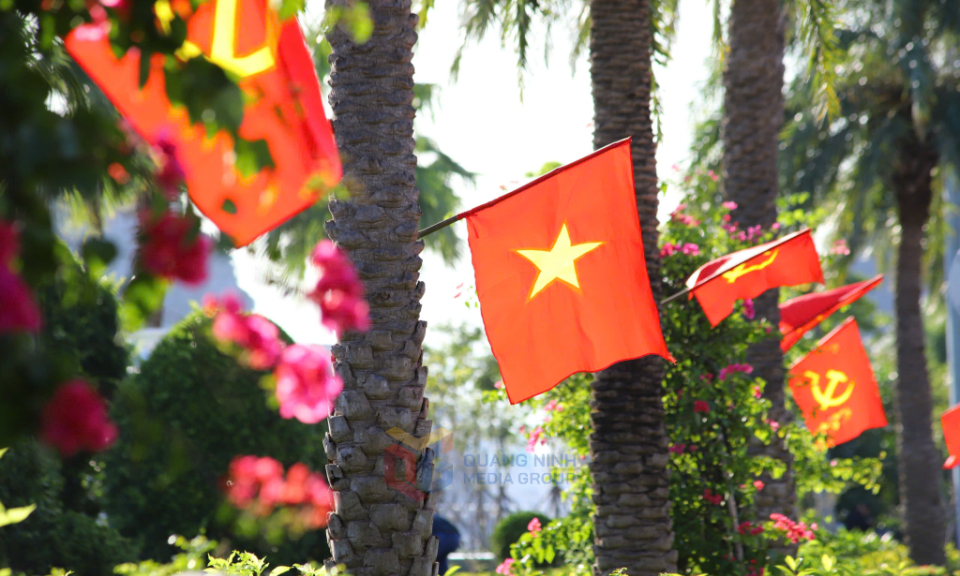PM outlines key priorities for trade, national celebrations at cabinet meeting
In preparation for the 80th anniversary of National Day, ministries and local authorities are tasked with reviewing and launching 80 major infrastructure projects across the country, Prime Minister Phạm Minh Chính said at the Government’s regular April meeting held on Tuesday morning in Hà Nội.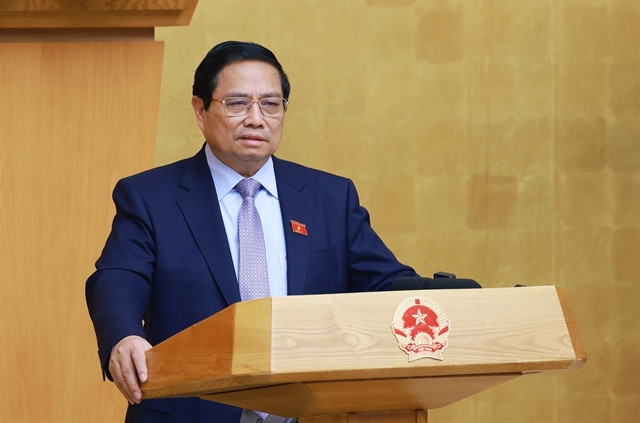
Developing a tariff negotiation strategy with the United States, proactively promoting harmonious and sustainable trade with the US and other key partners, and thoroughly preparing for major national events this year are strategic tasks for May and the months ahead.
The major events include the 135th anniversary of President Hồ Chí Minh’s birth and the 80th anniversary of National Day.
Prime Minister Phạm Minh Chính identified the tasks at the Government’s regular April meeting, held on Tuesday morning in Hà Nội.
At the meeting, the Government reviewed the country’s socio-economic situation, the leadership and policy implementation in April, and set out key priorities for May and beyond.
Chính also ordered relevant ministries to maximise the benefits of the 17 free trade agreements (FTAs) that Việt Nam has already signed, while accelerating negotiations for new FTAs, especially with countries that have recently upgraded diplomatic ties and with promising regions such as the Middle East, Africa and Latin America.
Domestically, he called for stronger efforts to boost consumer demand through effective implementation of the national stimulus plan.
He told relevant agencies to promote the 'Vietnamese people prioritise Vietnamese goods' campaign, particularly for OCOP (One Commune - One Product) Programme’s products.
He also demanded stronger action against smuggling, counterfeit and substandard goods, especially medicines, nutritional supplements and functional foods, and insisted on strict enforcement against false advertising.
Additionally, he required relevant agencies to consider expanding visa exemptions for selected countries and target groups.
In preparation for the 80th anniversary of National Day, in September, ministries and local authorities were tasked with reviewing and launching 80 major infrastructure projects across the country.
Chính also reiterated the importance of institutional reform, administrative streamlining and digital transformation.
He said that re-organisation must not disrupt public services or business operations.
Administrative procedures must be further simplified, decentralisation must be strengthened and public service delivery must be reoriented from a “permission-based” to a proactive, citizen-and business-friendly model.
He urged to reduce processing time for administrative procedures, cut compliance costs and eliminate unnecessary business conditions for businesses.
He also emphasised the need to complete legal reviews and issue new guiding documents on the merger of provincial-level administrative units, and to establish a two-tier local government model to ensure continuity and effective governance throughout the transition.
He urged greater efforts to stimulate economic growth by revitalising traditional growth engines while cultivating new ones. A top priority remains accelerating public investment disbursement, resolving legal and procedural bottlenecks and facilitating the progress of major, high-tech foreign direct investment (FDI) projects.
He also called for the effective rollout of the National Assembly’s resolutions and the Government’s action plan to implement Politburo Resolution 68-NQ/TW on developing the private economy.
Assessing April’s performance
At the meeting, Government members said April witnessed continued global instability, with escalating conflicts, strategic competition and the United States’ sudden announcement of reciprocal tariff measures.
The developments posed new risks to global economic growth.
Despite the external challenges, Việt Nam gained positive socio-economic results in April and the first four months of this year, outperforming the same period last year and creating momentum for further growth.
The achievements were attributed to the leadership of the Party, with direct guidance from the Politburo and the Party General Secretary Tô Lâm, close coordination with the National Assembly and the active participation of the public and business community.
However, the macroeconomic landscape remained fragile and the nation faced obstacles to achieving its growth targets.
Smuggling, counterfeit goods and poor-quality products of unclear origin continued to proliferate. Several projects were delayed due to legal complications, requiring urgent resolution to meet timelines. Institutional and legal shortcomings persisted and many citizens continued to face economic hardship. High-tech crime and online fraud were also rising concerns, the members said.
Chính said, in April, Việt Nam conducted a series of high-level diplomatic engagements, hosted several State visits and successfully organised major international events such as the Summit on Partners for Green Growth and the 2030 Global Goals (P4G Summit) and the ASEAN Future Forum.
He commended Việt Nam’s calm and strategic response to the sudden imposition of new US tariffs, which has already yielded some positive initial outcomes.
Reflecting on eight major socio-economic achievements in April, along with remaining shortcomings and key lessons learned, Chính said the country was facing complex mix of opportunities and challenges.
He warned that risks and uncertainties were on the rise.
Nevertheless, he viewed the pressures as both a test and an opportunity to restructure the economy, diversify markets and supply chains and build a more self-reliant and resilient economic model.
He concluded with a call for steadfast, flexible and creative governance to achieve strategic national objectives, including sustaining economic growth, controlling inflation, maintaining macroeconomic stability, ensuring social welfare, safeguarding national security and defence, enhancing foreign relations and international integration and preserving a peaceful and stable environment for national development.

